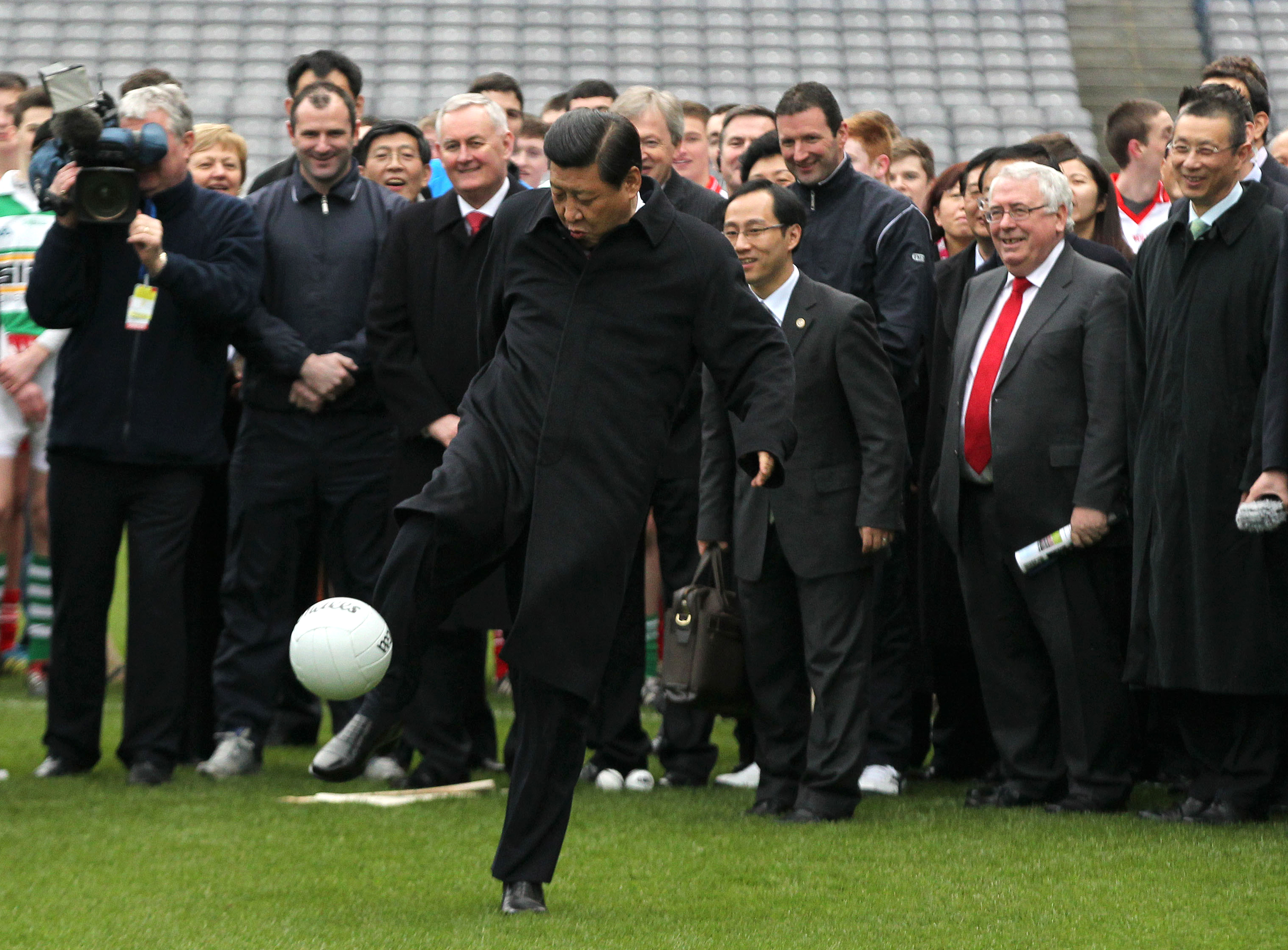China wants to win the World Cup within two decades. At least, that is what the football-mad Chinese president wants.
President Xi Jinping is known to be a passionate football fan.
Not only does he want China to be a serious contender for the World Cup, he also wants the country to host the world's most prestigious football tournament eventually.
While there was no widespread traction for the sport historically, his love for the "beautiful game" has transformed football radically in China.
However, China's teams have not fared well in recent international competitions.
The road to football glory
Xi's dream for football glory has made grooming the next Ronaldo or Messi a national project in China.
Chinese businessmen have rushed to back his vision since he became president in 2012.
Buying up top players is just one aspect of the political investments they are making on this front.
Cristiano Ronaldo was reportedly offered US$105 million a year (S$142 million) by a Chinese Super League club but he declined.
The US$356 million transfer fee (S$480 million) would have topped the record price of US$222 million (S$299 million) that Paris Saint-Germain paid for Neymar Jr that made him the most expensive player ever signed by a football club.
Chinese team owners have also spent hundreds of millions of dollars buying into European clubs, hoping to tap their coaching and marketing expertise.
Xi has also uncovered an ambitious blueprint on the local level to get more Chinese -- 50 million of them -- to play football regularly.
A statement published by the Chinese Football Association in 2016 proposed plans for 50,000 schools to have a strong emphasis on football by 2025, and for 70,000 pitches to be in place by 2020.
Endemic corruption in Chinese football
However, try as it might, China's World Cup dream remains just that -- a dream.
According to the South China Morning Post, the domestic game has been riddled with corruption for years since the game turned professional in 1994.
The imprisonment of former World Cup referee Lu Jun in 2012 for accepting bribes is one of the many high profile examples.
Match-fixing and blatant cheating in Chinese football leagues reached such a laughable extent, that even the most die-hard Chinese fan accepts that playing the "black ball" (fixed matches) and other forms of corruption are just an inalienable part of the game.
Recognising the extent of the problem, the country had tried to clamp down on such corruption, with several officials, players and referees having been punished, banned for life or jailed.
With the well-publicised clampdown and punishment by the government, even more money has poured in.
However, without fundamental reform, even big name signings won't help, according to former top Interpol cop and Fifa anti-fixing expert Chris Eaton of the International Centre for Sport Security (ICSS).
[related_story]
Cultural resistance
Perhaps the hardest hurdle comes in the form of deep cultural bias.
According to The New York Times, Chinese parents, even those from Xi's old school, the Bayi School, are worried about their children taking precious time away from academics, and have been resistant.
While China has excelled at individual sports that demand intense discipline from an early age, the country has not done as well at fostering group sports, where skills like teamwork and improvisation are equally, if not more, important.
And it remains to be seen whether the infrastructure put in place across the country will bring about the kind of cultural shift at the grassroots level that fosters widespread participation in the sport at the youth level.
For the sport to have an enduring future, it has to be grown from the bottom-up.
Perhaps Xu Yun, a 16-year-old fan, said it best:
It’s not just a question of spending money, it’s attitude.
Top image via Getty Images.
Here are some totally unrelated but equally interesting stories:
Mums share their experience in helping their kids go cashless
This guide to interacting with persons with disabilities will make you a better person
If you like what you read, follow us on Facebook, Instagram, Twitter and Telegram to get the latest updates.
